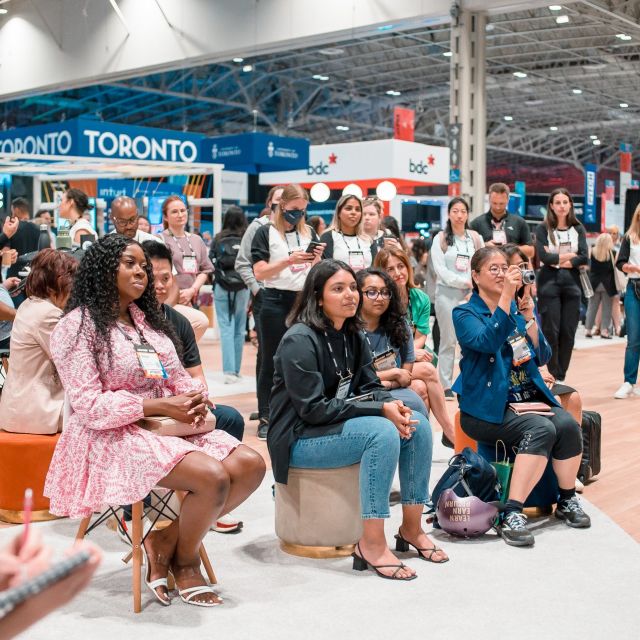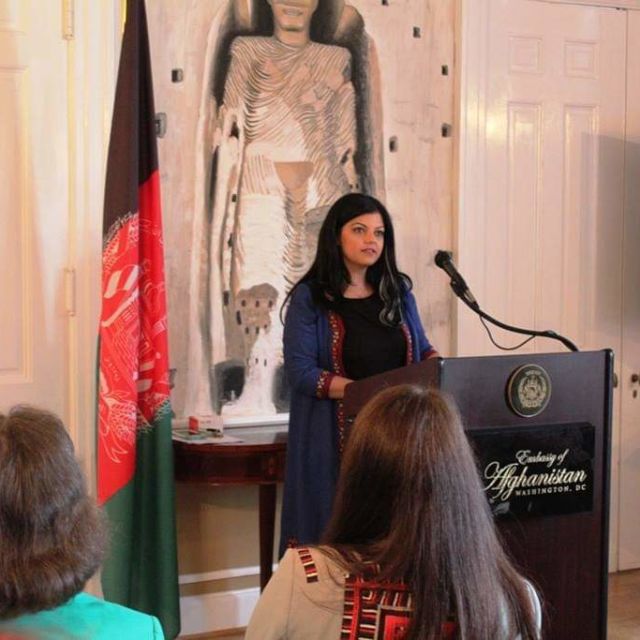Two popular Toronto speakers share insights on how to tailor presentation topics that engage and educate.

Want to see your attendees on the edge of their seats? We asked two in-demand speakers—Mina Sharif, an Afghan women’s rights activist and cultural consultant, and Daniel Lewis, author, entrepreneur and founder of award-winning tea company, Daniel’s Chai Bar—to advise on crafting topics that leave audiences informed and inspired.

" Know the audience's background, address specific issues, and adapt to the desired energy and format of the event for successful and impactful presentations."
– Mina Sharif, Afghan women’s rights activist and cultural consultant
1. Solicit feedback during event planning
To ensure content is relevant to your group, organizers should consider touching base directly with potential event attendees well before event registration, then design your program around the suggestions, Lewis advises. “I think you get a huge advantage if you try to talk to the audience first. Surveys, polls, ask them what they want.”
Over the past year, the most sought-after topics in workplace culture have been mental health and diversity and inclusion.
– Daniel Lewis, founder of Daniel’s Chai Bar
2. Ask your speakers to tailor their topics
Speakers tend to have a range of topics, but they also have expertise to tailor the narrative towards your group. Setting aside time to discuss content with speakers is a basic step that helps ensure your topics resonate. Lewis likes to do a “discovery call” with clients around needs.
Adds Sharif: the process is powerful but doesn’t have to be lengthy, “It’s just a quick conversation.”
3. Give your speaker details about your audience and end goals
What specifics do speakers find helpful when developing topics? Lewis likes to understand why the event is being held. “Then I get a better understanding of who might be coming and what attendees might be looking to walk away with. I also like to know what [planners have experienced] in the past with other speakers that they either really liked or really didn't sit well with them.”
Prioritize understanding the purpose of the event, tailoring your presentations based on past organizer experiences and the expectations of the audience.
– Mina Sharif
Priorities for Sharif include understanding who the audience is, and hearing about mood and feel. Organizers know what kind of energy they want an event to have, she says. “Sometimes it's kind of a smaller, more intimate conversation and we might be talking about, say, how do we approach people of different backgrounds when they join our company?” Your group may have very specific issues they want to address, Sharif says, “And so it really, really helps to have those conversations.”
" Take advantage of the Toronto's robust diverse resources. Think outside the box of conventional speakers, get a variety of voices and perspectives in the room."
– Daniel Lewis
4. Talk to speakers about trends they’re seeing
Speakers have a unique perspective, so asking them about audience trends can help planners land on relevant topics. Of specific trends, Lewis says, “Mental health and diversity and inclusion are topics in workplace culture that are probably the biggest requests over the past year. I think it's a testament to the conversations that are happening in real-time in organizations and in the economy.”
5. Create space for speakers to get personal
For Sharif, Toronto offers an array of dynamic speakers with excellent credentials and diverse and fascinating lived experiences. She says encouraging speakers to bring personal experiences to topics can deepen resonance. “There's something quite vibrant about listening to someone tell you about their life versus about only their professional experience.”
6. Tap into Toronto’s diversity
As you round out content—for workshops, panel discussions and more—Lewis encourages meeting pros to take advantage of the city’s robust resources. “You are coming into one of the most diverse places on earth. Think outside the box of conventional speakers, get a variety of voices and perspectives in the room from a program planning standpoint. You want speakers of different nationalities, different sectors, different industries, different backgrounds.”
READ MORE: Discover DEI Advocates to Add to Your Keynote Speaker Wish List
